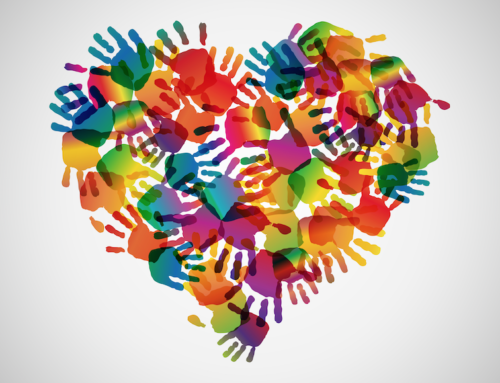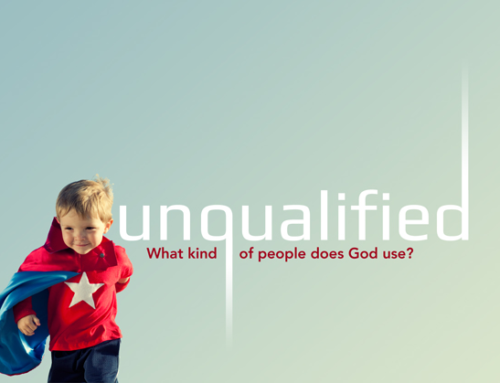8 Keys to Emotionally Healthy Faith
August 20, 2018
Categories: Religion/Spirituality
I’m a big believer that you can’t have spiritual health without emotional health. Part of this conviction has to do with my background. I’m a Christian, and I’m also a psychologist. The way of Jesus is the key framework that orients my life and values. I also view emotional health as foundational to the Christian life.
Christianity in Crisis
I think Christianity is in crisis. David Kinnaman did a survey awhile back in which he asked young people what they thought of Christians. The top answers were not the fruit of the spirit such as love, kindness, faithfulness, and gentleness. Instead, Christians were perceived to be judgmental, overly political, hypocritical, and anti-gay.
Almost every week, a news story breaks about another Christian leader who messed up big time in their personal life or relationships, and is now out of ministry. For example, in the church I grew up in, the pastor resigned following accusations of sexual misconduct. One of the leaders of the Southern Baptist Convention was fired because he mishandled cases of sexual assault.
It doesn’t always make the front page of the news, but struggles in emotional health can negatively impact our spiritual lives in a variety of ways. One Christian might struggle with guilt under the weight of her sin. Another follows all the rules but can’t seem to experience the love of God. Yet another might be disintegrated—part of him yearns to follow God, but another part of him can’t stop using illegal drugs. Christians struggle to engage with people who are different from them. They fail to respond to the cry of the oppressed, blind to their own power and privilege. Some Christians volunteer at church non-stop, without ever pausing to think about why their lives are so busy. And so on.
8 Key Areas of Emotionally Healthy Faith
What does it look like to have an emotionally health faith? Here are 8 key characteristics:
- Grace. Emotionally healthy Christians have a deep understanding of grace. Grace refers to unconditional acceptance, and it is the foundation of the Christian faith. God loves us and accepts us just as we are. Because of this, we can love and accept others, just as they are. The opposite of grace is judgment. Christians who are emotionally unhealthy are judgmental toward themselves and others. How are you doing with grace?
- Faith. Emotionally healthy Christians have a strong faith. True faith is closely tied with our values and actions. When you are a person of faith, you direct your life in the direction of Jesus. In other words, your actions align with the values of Jesus, and you head that direction. The opposite of faith is rules. Christians who are emotionally unhealthy might follow all the rules, but it has to do with compliance or checking a box, rather than aligning one’s life with the values of Jesus. How are you doing with faith?
- Freedom. Emotionally healthy Christians are free. Freedom is a central theme of the entire Bible, beginning with the Exodus story and continuing throughout the text. When you are free, you are unburdened by the yoke of slavery, either to sin and addictions or rules and regulations. Christians who are emotionally unhealthy are in bondage, again either to their sin and addictions or to rules and regulations. How are you doing with freedom?
- Life. Emotionally healthy Christians live life to the full. Their lives are full, vibrant, growing, and expanding. For them, eternal life happens both now and later. Christians who are emotionally unhealthy either are moving toward death, or have put off living in the present in exchange for the hope of a better life in heaven later. How are you doing with life?
- Humility. Emotionally healthy Christians are humble. They are humble before God, and they are also humble in relationship with one another. They do not just think of themselves, but they put the needs of others above their own. They are other-oriented rather than self-centered. Christians who are emotionally unhealthy are self-centered and certain of their own “rightness.” They lack openness to other perspectives and points of view. How are you doing with humility?
- Justice. Emotionally healthy Christians work for justice. They understand that all people are equal in the eyes of God, irrespective of their race/ethnicity, gender, nationality, or sexual orientation. They work to ensure that all people have equal opportunities and are treated with respect. They use their privilege to help others who are less fortunate. Christians who are emotionally unhealthy don’t care about justice, and work to maintain privilege and the status quo. How are you doing with justice?
- Integration. Emotionally healthy Christians are integrated. They don’t say one thing and do another. Their inside matches their outside. They understand and are in touch with their shadow, or the darker parts of their personality. Christians who are emotionally unhealthy are disintegrated. They lack awareness of various parts of themselves. They might say one thing and do another. Their inside does not match their outside. How are you doing with integration?
- Sabbath. Emotionally healthy Christians understand and practice the principle of Sabbath rest. They know the importance of limits and boundaries. They set healthy limits on their time and energy, and set appropriate boundaries in their relationships. Christians who are emotionally unhealthy blow past healthy limits and boundaries. They might be workaholics, or cross boundaries in their relationships. How are you doing with Sabbath?
Take Home Message: You can’t have spiritual health without emotional health. Our boxes are connected. What happens in one area of our life impacts (for better or worse) the other areas of our life. Take stock in your faith life right now. What aspects of your faith are emotionally healthy? What aspects of your faith are less emotionally healthy? What is one area you might want to work on moving forward?

Related Thoughts

Subscribe To My Newsletter
Join my mailing list to receive the latest blog posts.
Receive my e-book “The Mental Health Toolkit” for free when you subscribe.





